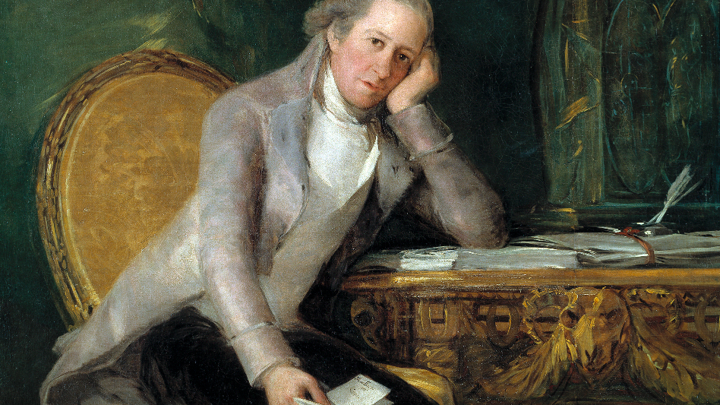When I look at the title of this blog I cringe. Too many times in my life that expression has been used as a condemnation of witticisms and humor. If “a merry heart doeth good like a medicine,” then words that help produce that status cannot be evil. At another time am I going to discuss the difference between true humor and mere mocking, which unfortunately has become the stock in trade of much of our society. But that is for another day.
The root of my problem came from a few words, not intended to wound me, and which, at the time, did not wound me. They made rather good sense, actually. Those, of course, are the most deadly kind.
Only recently did I come to fully understand the significance and impact of that phrase. One of the reasons I do not blog more often is because, as I have too often said, “I have no illusion that every thought that enters my head is worth being written down, or worth reading.” Now I cringe at that. One of the big barriers to writing, editors and authors tell us, is that we engage in too much self editing, that is, we try to get it perfect on the first draft — an impossibility — instead of just getting out there, and then perfecting it.
That is the main struggle I have. Even though now I have three books and well over a hundred articles published in multiple publications, not counting these blogs, I still struggle with too much self editing in the early stages. And only recently, though I am sixty-eight years of age, have I realized the roots of my problem.
I was bundled off to boarding Academy at the tender age of fourteen, my parents absolutely convinced that I would be enthralled by the experience. For various reasons, my experience in boarding school was nearly all pure hell. My expectations, fueled by my parents attitude, that it would be a wonderful time, only exacerbated the situation. But I am at peace with all of that now, and that is not the root of my self editing problem. Rather, it came from a few humorous words, not intended to wound me, and which, at the time, did not wound me. They made rather good sense, actually. Those, of course, are the most deadly kind.
You see, I was plunged into an atmosphere in the dormitory of nearly continuous bullying. Naturally, I was dreadfully homesick. And for the first several weeks, I wrote home every day. Oddly enough, I did not speak of the bullying — I didn’t want to sound like a baby. I wanted to find a way to enjoy the experience. So I wrote of such pleasantries as I enjoyed, the trivia of my everyday existence. But that came to an end.
I do not remember the circumstances, I just remember my mother laughing. She was talking to someone else in my hearing. And she was grateful that she heard from me, even though, as she said, “Sometimes the letters were so short that they were barely worth the stamp.” As I mentioned earlier, this did not wound me. I did not feel minimized or marginalized. I did not feel angry or hurt. On the contrary, it made perfect sense. Some of my missives had been scarcely more than a paragraph. Was that really worth the expense of an envelope and stamp? Probably not.
I never wrote another letter home from the Academy.
I have to emphasize again, that this was not out of pique or anger. I simply concluded that most of the ordinary happenings that occurred in my life were not significant enough to warrant the expenditure of the stamp. I want to emphasize this: my mother meant no harm, and I took no offense. And yet, more than half a century later, those words influence my writing — or rather, inhibit my writing.
I share this epiphany not to condemn my mother, only because it brought home to me how other words can impact people in ways we cannot imagine. As someone who spent many hours in the classroom teaching, and as a parent, I can only tremble when I think of the thousands of words I uttered, and the frightful consequences they may have had, even when they were not hurtful or otherwise derogatory words. Rather, they were “idle words,” words to which I give voice without significant thought.
And that is why I know cringe at the remark that, “I have no illusion that every thought that enters my head is worth being written down, or worth reading.” It is the thought that I may be inhibiting some other writers, who might struggle for a long time finding ways to express themselves.
And so I resolve to engage in less self editing, to be more forthcoming in sharing my thoughts, and especially to be more conscious of what I say, and how that may affect others who read or hear my words.






